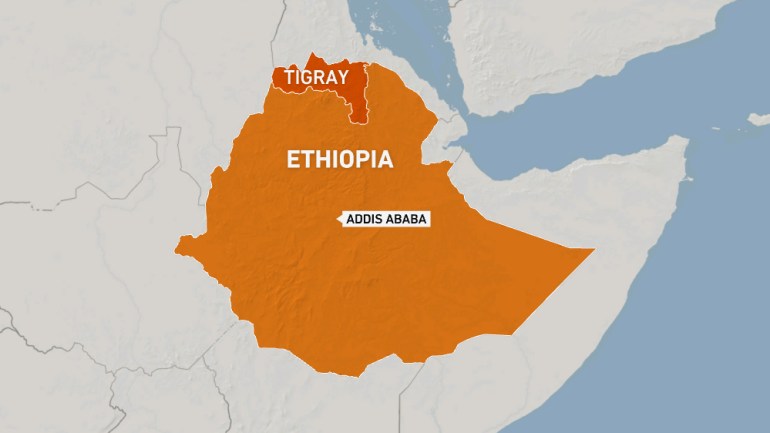Tigray leaders say the federal government has launched more than 10 air attacks against the region in recent days.

The flare-up in the northern region bordering Eritrea and Sudan has raised fears of civil war in Africa’s second-most populous nation where ethnic conflict has killed hundreds since Prime Minister Abiy Ahmed took over in 2018.
“Ethiopia is grateful for friends expressing their concern. Our rule of law operation is aimed at guaranteeing peace and stability once and for all by bringing perpetrators of instability to justice,” he tweeted on Monday.
“Concerns that Ethiopia will descend into chaos are unfounded and a result of not understanding our context deeply.”

Leaders of Ethiopia’s northern Tigray region said on Monday the federal government led by Abiy had launched more than 10 air raids against them in recent days.
The Tigray People’s Liberation Front (TPLF), which governs the northern region on the border with Eritrea and Sudan, did not mention any casualties in a statement on Facebook.
Newly appointed Ethiopian army chief Berhanu Jula said federal forces had captured four towns in western Tigray where much of the fighting has reportedly been concentrated. Reports of dead and wounded soldiers have mounted in the neighbouring Amhara region.
Abiy, 44, who is the continent’s youngest leader, won the Nobel Peace Prize last year for democratic reforms following years of repressive government and for making peace with Eritrea after a border war that had killed tens of thousands.
But the conflict in Tigray threatens national stability.
Bombing targets
Last week Abiy, who comes from the Oromo, Ethiopia’s largest ethnic group, launched a military campaign saying forces loyal to Tigrayan leaders had attacked a military base and attempted to steal equipment.
The Tigrayans account for just five percent of Ethiopians but had, before Abiy’s rule, dominated politics since rebels from their ethnic group toppled Marxist military rule in 1991.
Federal government fighter jets have in recent days been bombing targets including arms depots in Tigray. Aid workers on Sunday reported heavy fighting between troops loyal to each side, with at least six dead and dozens wounded.
Battle-hardened
The TPLF, which governs the region, are battle-hardened from the 1999-2000 war with neighbouring Eritrea and from the guerrilla struggle to topple Mengistu Haile Mariam in 1991.
They and militia allies number up to 250,000 fighters and possess significant stocks of military hardware, according to the International Crisis Group think-tank.
Tigrayans say Abiy’s government has unfairly targeted them as part of a crackdown on past rights abuses and corruption.
“These fascists have demonstrated they will show no mercy in destroying Tigrayans by launching more than 10 air strike attempts in Tigrayan cities,” the TPLF said via Facebook.
“The people and government of Tigray are standing together,” it added in the post on Monday.
Abiy, a former soldier who fought alongside Tigrayans against Eritrea, has so far defied calls from the United Nations and others to negotiate.
One risk is that Ethiopia’s army could split along ethnic lines, with Tigrayans defecting to the regional force.
Ethnic violence
There are also fears of reprisals against Tigrayans elsewhere. Addis Ababa police said on Sunday the government had arrested 162 people in possession of firearms and ammunition on suspicion of supporting the Tigrayan forces.
Furthermore, as Abiy’s government mobilises troops to Tigray, other areas already roiled by ethnic violence could face a security vacuum, analysts say.
Thousands have had to flee their homes in the last two years in the nation of 110 million people.
Analysts do not believe the clashes will reawaken the Eritrea conflict, given that President Isaias Afwerki and Abiy both see the Tigrayan leadership as enemies.
All-out war would damage Ethiopia’s economy after years of steady growth. Abiy has pledged sweeping reforms to open lucrative sectors such as telecoms to foreign investment.
